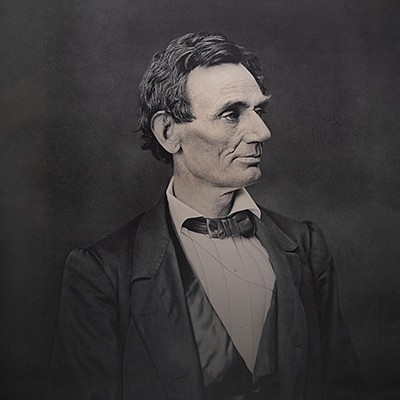Malcolm X Signed Page for Alex Haley’s 1963 Playboy Interview - Discussing European Thievery of African Culture (PSA NM-MT 8)
Two ways to bid:
- Leave a max absentee bid and the platform will bid on your behalf up to your maximum bid during the live auction.
- Bid live during the auction and your bids will be submitted real-time to the auctioneer.
Bid Increments
| Price | Bid Increment |
|---|---|
| $0 | $5 |
| $50 | $10 |
| $200 | $25 |
| $500 | $50 |
About Auction
Feb 14, 2024
RR Auction's February Fine Autographs and Artifacts auction boasts 600 unique items, and honors Presidents' Day with a special section featuring incredible presidential autographs, artifacts, and memorabilia. RR Auction support@rrauction.com
- Lot Description
Page 36 from the original typescript of Alex Haley’s 1963 interview of Malcolm X for Playboy magazine, one onionskin page, 8.5 x 11, signed "Malcolm X" in the bottom margin (with a marginal line indicating his approval of the contents). In full [spelling retained]: “[Malcolm X] ...out as professional soldiers in Europe. Wait a minute, sir, there's more, Egyptian civilization is a classic example of how the white man stole great African cultures and makes them appear today as white European. The ancient Sumarians were a black-skinned people, who gave us our alphabets. They occupied the Middle Eastern areas and were contemporay with the Egypitan civilization. The Bravidians were a black-skinned people who occupied the sub-continent of India and their civilization pre-dated that one that is there today, and they had a higher cultural level than that one which is there today.
The Incas, the Mayans, the Aztecs, all dark-skinned people, Indians, had a highly developed culture here in America, what is now Mexico and Northern South America. At the time when the white people up in Europe still were living in mud huts, these people had mastered agriculture, when white people in Europe were still eating weeds. Sir, you don't have to take my word. Your readers don't have to take my word. Let them read for themselves. As a matter of fact one of the best sources I know is put out by the United Nations. Read the Unesco Courier special edition of October 1959. Let them read any books about ancient Egypt.” In fine condition. Encapsulated and graded by PSA/DNA as “NM-MT 8.”
Playboy's May 1963 interview with Malcolm X was one of the most famous of Haley’s career and gave most readers their first in-depth look at Malcolm X’s teachings and personality. Supporters and critics viewed the Muslim minister in very different terms. Admirers saw him as a courageous advocate for the rights of African-Americans and condemned crimes against black Americans; detractors accused him of preaching racism, black supremacy, and violence. Nevertheless, he has been described as one of the greatest and most influential African-American leaders in history. Within a year of granting this interview, with America still gripped by ever-growing racial tension, the once-combative black nationalist Malcolm X had repudiated almost every stance in the interview. He had broken with the Nation of Islam movement, fallen out with its leader, Elijah Muhammad, renounced black supremacy, and embraced racial equality and human rights. He was assassinated in Harlem in 1965. - Shipping Info
-
Bidder is liable for shipping and handling and providing accurate information as to shipping or delivery locations and arranging for such. RR Auction is unable to combine purchases from other auctions or affiliates into one package for shipping purposes. Lots won will be shipped in a commercially reasonable time after payment in good funds for the merchandise and the shipping fees are received or credit extended, except when third-party shipment occurs. Bidder agrees that service and handling charges related to shipping items which are not pre-paid may be charged to a credit card on file with RR Auction. Successful international Bidders shall provide written shipping instructions, including specified Customs declarations, to RR Auction for any lots to be delivered outside of the United States. NOTE: Declaration value shall be the item’(s) hammer price and RR Auction shall use the correct harmonized code for the lot. Domestic Bidders on lots designated for third-party shipment must designate the common carrier, accept risk of loss, and prepay shipping costs.
-
- Buyer's Premium



 EUR
EUR CAD
CAD AUD
AUD GBP
GBP MXN
MXN HKD
HKD CNY
CNY MYR
MYR SEK
SEK SGD
SGD CHF
CHF THB
THB




